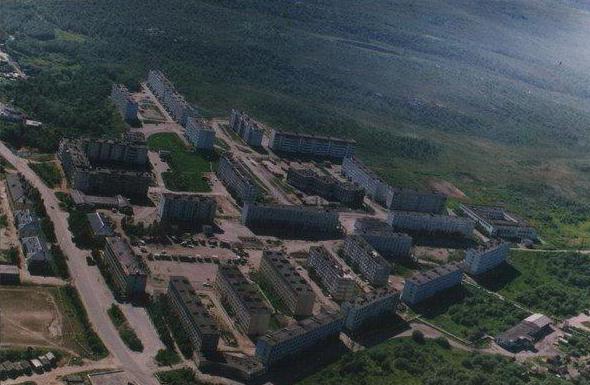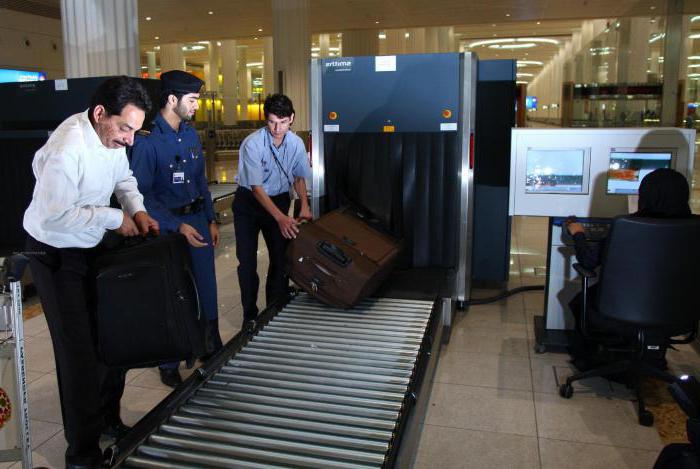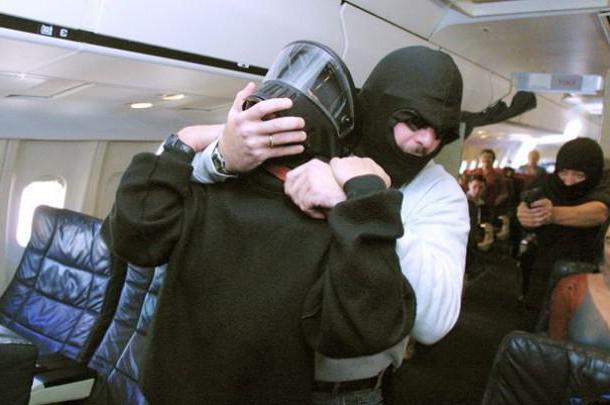If there is a crime that has become known to law enforcement agencies, certain work should be done on it - investigation of the crime report and preliminary investigation if necessary.
If the clarification of circumstances is preliminary, that is, it is necessary to ascertain the existence of a criminal offense, then the investigation is already a concrete work to identify evidence and all other signs, factors and criteria that relate to illegal action.
Position
With regard to the preliminary investigation, there are rules that are indicated by the term "jurisdiction".

Thus, crimes are divided into categories not only in relation to the object or subject, but also by the body that will deal with the criminal case.
In article 151 of the Code of Criminal Procedure of the Russian Federation, illegal actions considered by various authorities are indicated in sufficient detail. It is worth noting that in order to determine the jurisdiction, it is necessary to correctly qualify the crime at the very initial stage. This requires the official to have knowledge and experience.
In addition, it should be noted that in this article there were changes in 2015 in terms of powers customs authorities by preliminary investigation and Article 215, offenses related to nuclear energy (Article 151 of the Code of Criminal Procedure of the Russian Federation - “Consultant Plus”) was put into effect, when compared with a document effective from 03.20.2011.
Receipt of information
Reporting a crime can come to different people in several ways. These may include: an application to law enforcement agencies, a call to 02, direct detection of criminal acts by the prosecutor, investigator or inquiry officer, as well as the head of the investigation department or inquiry department. Criminal procedural legislation contains information about such persons - a preliminary investigation is carried out by investigators and interrogators (the first part of Article 151 of the Code of Criminal Procedure of the Russian Federation), which means a specific circle of people who can do this.

Thus, as soon as it becomes known that the crime is being prepared, committed or has already been committed, the MVD officer, as soon as he finds out about it, must report the event, including with the submission of a report to the authorities of the authority where he is serving.
Urgent action
Very often, when a crime is detected “on the spot”, it is necessary, in order to avoid loss of evidence or suspicion that the offender may be absconding, carrying out urgent investigative actions.
According to article 157 PC RF, investigative actions are carried out immediately, after which the employee who performed these actions must inform the prosecutor about this. At the same time, if the person who committed the crime was not discovered, the bodies of inquiry are engaged in the search.
In general, the procedure for considering reports of a crime involves first of all determining the circle of people who can and should do this.

This is indicated by part 1 of article 151 of the Code of Criminal Procedure. In addition, it is established what actions should be performed if a message was received in any way. The review procedure is, first of all, a plan, which includes determining the competence and authority of bodies and persons.
The meaning of the initial action
The body that received the report of the crime must first decide whether the initiation of the case is required and whether a preliminary investigation is required. In this regard, both urgent actions and initial necessary ones are carried out. The latter include the interrogation of witnesses, the victim and the suspect, if identified.
Often the course of the whole matter in the future also depends on the quality of the production of the initial actions. In the event of the loss of important evidence with the carelessness of an official, it may turn out that the corpus delicti or the necessary weighty evidence will be eliminated.

This prevents the proper consideration of the case, and in some cases - the initiation of a criminal case where it is really necessary.
The role of inquiry
It is worth noting that after considering the circumstances of the crime and identifying signs of a crime, only the inquiry agency has the right to initiate a criminal case not under jurisdiction. This follows from Article 157 of the Code of Criminal Procedure, in which only this structure is noted, the investigating authorities are not mentioned in this regard. Thus, the inquiry is the body that can initiate a case and transfer it under jurisdiction. And none of the bodies of another category has the right to do so.
The bodies entitled to conduct an inquiry are indicated in part 3 of article 151 of the Code of Criminal Procedure of the Russian Federation.
This is due to the fact that the interrogator plays the main role in the proceedings on private and public-private charges. Unlike investigative bodies, which are limited by law in this sense, the body of inquiry is often transferred powers to perform many investigative actions.
The separation of powers is related to the features of a particular activity. In addition, the investigation of a criminal case, which does not pose a great public danger and is initiated only at the request of the victim, does not require the application of harsh restrictive measures against the suspect. The investigating authorities are nevertheless aimed at preventing, identifying and investigating more complex cases that are extremely dangerous for society.
Region
Territorial jurisdiction is also important, however, this is not specifically indicated in Article 151 of the Code of Criminal Procedure of the Russian Federation (“Consultant Plus,” all editions). In this case, the committed act is competent to investigate those bodies in the area where the crime was detected. In the event that this is a continuing malicious act and started in a completely different region (or locality), then the investigation is carried out at the place of termination.

In some cases, for completeness and adequacy of the process, it is carried out not in the territory of the last episode, but where the accused lives or most of the witnesses are located. In addition, this may be necessary if the transfer of the investigation to the place of the final act is difficult due to the long distance, and in this regard the procedural terms of the preliminary investigation or inquiry.
In the case of combining criminal cases, jurisdiction is determined, according to Article 151 of the Code of Criminal Procedure of the Russian Federation in the new edition (and in the old one), by the prosecutor.
The powers of inquiry of different organs
It may seem to ordinary people that all criminal cases are examined in the bodies of the Ministry of Internal Affairs by investigators. However, it is not. Each structural organization has its own inquiry body, which investigates cases by profile. In addition, there is a more general inquiry relating to law enforcement bodies.
So, crimes committed by officials of the bodies of the Investigative Committee, the FSB, intelligence and persons of similar institutions are considered by investigators of the Investigative Committee, which is indicated, in addition to the provision itself, by the comment given in the legal literature under Article 151 of the Code of Criminal Procedure of the Russian Federation.Inquiry in the Investigative Committee occurs only if the crimes that are under investigation by the body of inquiry on a common basis have been committed by the officials mentioned above.
Large-scale and especially large-scale evasion of special payments at customs is considered by the inquiry body of the customs authorities.

Investigators of drug and substance trafficking authorities may engage in crimes that are provided for in the relevant articles, but only in the first part, that is, unqualified acts.
Investigation Powers
For each crime, there is an appropriate body that will consider it. But when a message is received about a committed or preparing act, regardless of the authorized body, as already noted, they are examined by the inquiry bodies. This is the body that does all the "dirty work" before carrying out real investigative actions. The rest of the functions of investigating crimes are already performed by those bodies, the jurisdiction of which is a malicious act.
So, article 151 of the Code of Criminal Procedure of the Russian Federation with the latest amendments provides that the working group of the investigative committee carries out a preliminary investigation of crimes committed only under specific articles and related only to certain individuals. If the report of the act fell into the investigative committee, the initial actions are carried out by the inquiry body, and then the materials are transferred to the jurisdiction.
The most necessary thing in this regard is not to miss important points. If the case does not require immediate investigative actions, consideration can be transferred immediately upon receipt of the message.
The bodies involved in federal security consider such cases that are related to the state (part 4 of article 151 of the Code of Criminal Procedure of the Russian Federation, current reaction). These include such as:
- export of materials and raw materials that can be used in the manufacture of weapons of mass destruction, outside the Russian Federation;
- terrorist act;
- hijacking by air or rail;
- mercenarism, expressed in the recruitment of a mercenary and its use in military operations and armed conflicts, etc.
Customs authorities, accordingly, investigate cases related to border crossing.

However, in this case, the law requires customs to conduct only an inquiry on crimes committed under articles 194 and 200.1 of the Criminal Code of the Russian Federation - evading payment of the amounts stipulated at customs and smuggling money.
The duty of the preliminary investigation (as of the CPC for 2011) under the inactive article 188 of the Criminal Code of the Russian Federation (smuggling) 151 Code of Criminal Procedure in the new edition does not contain.
Determination of Jurisdiction by Organ
In the event that a controversial situation has arisen regarding jurisdiction, the prosecutor is responsible for resolving it. However, this situation arises only for the reason that authorized persons and authorities simply do not have the opportunity to correctly qualify a crime for various reasons. If we consider article 151 of the Code of Criminal Procedure of the Russian Federation in more detail, then it explicitly indicates articles and even paragraphs, focusing on which it is necessary to hand over cases of jurisdiction.
For example, a preliminary investigation under article 359 of the Criminal Code of the Russian Federation (mercenarism) refers to both the IC and the FSB. However, the points do not specifically indicate which authority should do this. Apparently, the specific situation depends on the gravity of the crime and on the strength of its influence on the country's security.
Intentional grievous bodily harm in parts one through three is considered by the internal affairs bodies, and already in part four by the investigative committee, as defined in Article 151 of the Code of Criminal Procedure of the Russian Federation.
Therefore, the definition of jurisdiction is of great importance and in some cases affects the course of the investigation. The experience gained by the employees in considering cases that are authorized to investigate by force of law is also important here.Of course, all law enforcement officials who have worked for a long time have a huge amount of knowledge, but here you can compare them with doctors who are mainly involved in treatment in a particular area - activities in a completely inappropriate field will be fraught with errors in some cases, and with a lack of experience in the treatment of diseases uncharacteristic of a particular specialty.
Determination of jurisdiction by subject or object
Thus, it can be noted that when a fact of a crime is revealed, a law enforcement officer or other bodies have the opportunity to determine, in accordance with Article 151 of the Code of Criminal Procedure of the Russian Federation, the jurisdiction and report this to the appropriate institution, if this clearly follows from the nature of the crime (or already committed, or being prepared ) or initiate in their own department verification of the message about the deed, the carrier of which will be this employee.
For example, if a corpse is discovered (either a murder is committed, or another act takes place that led to the death of the victim), it is necessary to establish the reasons.
It should be noted that under Article 105 of the Criminal Code of the Russian Federation (murder), a preliminary investigation can be conducted by both officers of the UK and the police department. Drug control agencies or the state security service cannot deal with this matter. However, this does not include cases where the murder is closely related to the scope of activity of these bodies.
Nuances
In addition, you can also give an example under article 211 of the Criminal Code of the Russian Federation (hijacking of air or rail transport), according to which, according to article 151 of the Code of Criminal Procedure, preliminary investigative actions are carried out by the FSB. This article is subject to review by the investigative committee. It all depends on the severity of the crime, since, as already noted, the committee is engaged in serious and especially serious acts, therefore, this body will consider a criminal violation in connection with the death of victims or with the onset of serious consequences (in part three).

In fact, the hijacking carried out with the aim of committing a terrorist act (part four) is more related to the conduct of the FSB. In addition to the fact that article 151 of the Code of Criminal Procedure of the Russian Federation, with the latest amendments, fairly accurately delimits powers, one should also take into account the availability of special tools and persons to solve a specific crime.
Private applications
Often, citizens themselves report to the authorities (primarily local law enforcement) about a crime committed against individuals themselves. If the case is urgent, the inquirer checks the application and then transfers it to the jurisdiction.
Citizens also have a place of appeal through the Internet reception of the Investigative Committee. The application is mandatory considered and (if there is also no need for urgent investigative steps) the case for studying the composition is referred to other bodies, the committee notifies the applicant of the transfer of materials to the necessary authority.








